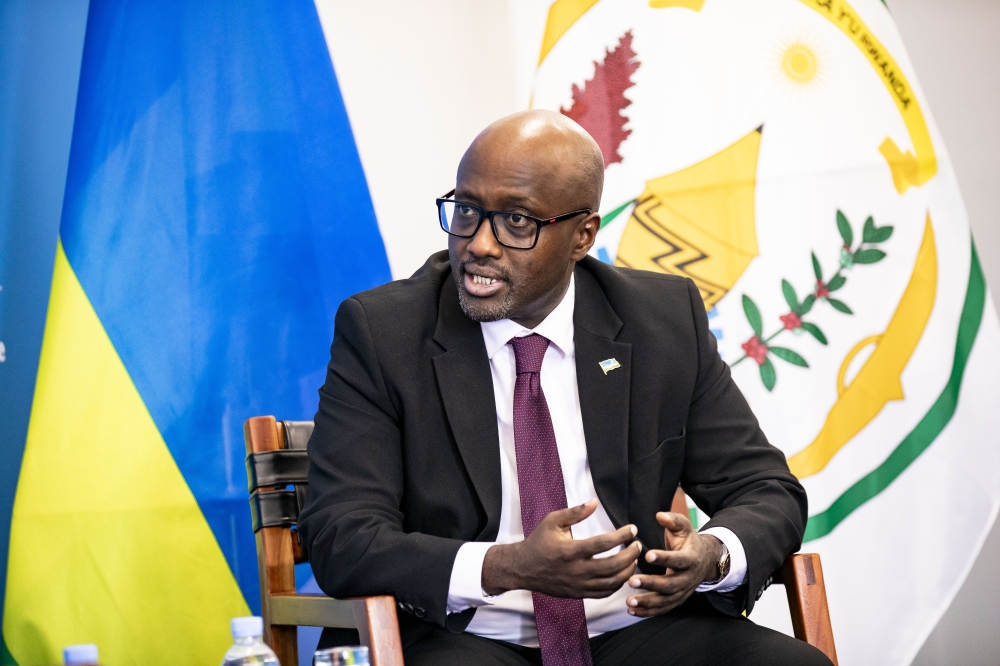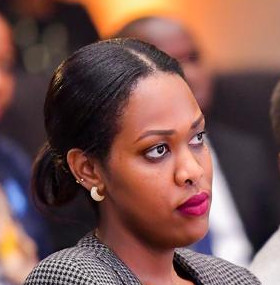

Rwanda has been expanding its diplomatic wings across the world, especially in the global south, over the recent years. With the relations, comes enhanced political and economic ties, people-to-people exchanges, and cultural sharing, among others.
On multilateral scenes, the country participated in the recently concluded Commonwealth Heads of Government Meeting (CHOGM) and handed over the Chair-in-office of the Commonwealth to Samoa.
The New Times’ Alice Kagina had an exclusive interview with the Minister of Foreign Affairs and International Cooperation, Olivier Nduhungirehe, who delved into the benefits of Rwanda’s participation in such an organisation and the expanded diplomatic reach, among others.
Below are excerpts.
How was Rwanda’s journey as Chair-in-office and what tasks were fulfilled during the tenure?
Rwanda was Chair-in-office for the past two years with different projects in the pipeline and working with the secretariat of the Commonwealth in London.
Much of this included youth empowerment. We have a young community that makes up 60 percent of the population of the Commonwealth, and even in Rwanda it is about 70 percent.
We needed to discuss creating jobs for youth, especially jobs for the future, where we championed digital transformation and the promotion of Artificial Intelligence.
We also pushed for democratic resilience transformation because we are a community of 56 members across five continents with a population of 2.7 billion including communities like the G7, and G20 but also least developed countries, small islands states, among others.
It’s a diverse community and as Rwanda, our interest in membership of this kind of community is to promote intra-commonwealth trade.
We have a number of developing states within the Commonwealth, it's important that we all think about transitioning from aid to trade, and we should do that through trade and investment amongst us.
We also supported institutional reforms within the Commonwealth for a responsive and efficient secretariat that would implement the different declarations and programs for the benefits of a member state.
We were working in a troika format, composed of the current chair, the outgoing and the incoming chair. So we were working with the United Kingdom which was the previous chair in office, and then Samoa, which was incoming.
We will remain in the troika because we are now the outgoing chair in office, meaning we will work with Samoa, and with Antigua and Barbuda, which will host the next CHOGM in 2026.
What are some of the pending work you pushed forward as Samoa takes over?
There are always pending tasks. We adopted a communiqué at the end of CHOGM in Apia, Samoa and also adopted an Apia declaration on oceans in order to address the issue related to climate change, the rise of sea levels.
As you know, we have many small islands in the Pacific that are really in an existential threat from the rise of sea level. We heard testimony from the Prime Minister of Tuvalu about how his country will disappear from the map before the end of the century because it's a small country, 26 square kilometres, which is just barely at sea level.
There are also other islands that face the same and Rwanda expresses solidarity with those islands, we face challenges related to climate change on our continent.
As chair, we dealt with this issue but it is still on our agenda. That is why we had a separate declaration, the APA declaration on oceans, which was based on our theme of the commonwealth, ‘Transforming our Common Wealth.”
In the report of the Secretary General, there were four sub-themes about resilience. It was building resilient governments and democracies, resilient economies, resilient environment and resilient societies and peoples.
We will work with the new Secretary General to implement the reforms that we were working on, and the different decisions that we took in Apia related to those themes.
Were there some agreements Rwanda signed at this year’s meeting?
We signed an agreement that established diplomatic relations with Samoa and while we didn't sign specific agreements with other countries, but in our chairmanship, we have been expanding our partnership with a number of countries that were not in our traditional sphere of cooperation.
No, we didn't sign specific agreements with countries, but in our chairmanship, we have been expanding our partnership with a number of countries that were not in our traditional sphere of cooperation.
We are talking about those Pacific Islands and the Caribbean countries. It is beneficial to our foreign policy because we have been expanding our relations with other countries with which we didn't have diplomatic relations and it's one of the benefits of our membership.
On that, we have seen increased bilateral agreements with countries in the global south. Why is Rwanda picking interest in those Pacific and Caribbean countries?
Rwanda and many African countries had diplomatic relations with the same traditional countries such as African countries, Europe, and the big powers but the world is changing.
We had many emerging countries with which we have the same concerns and aspirations. We talked about climate change, economy, trade, and investment, but also the need for people-to-people exchange.
For instance, Samoa is a welcoming country with opportunities and creativity. During CHOGM, they had a different approach of asking a village in Samoa to adopt a country, a member of the Commonwealth, then, in that village, flags of the specific country were raised.
We had our flag in Tuaga Manunu village in Samoa. Houses, trees, rocks were painted in the colours of our flag, and then kids were studying about Rwanda. They did that for all the 56 villages.
That is a welcoming gesture, but it's also important for raising awareness of the Commonwealth and its member states, and to pave the way for people-to-people exchange.
The economic and cultural exchange opportunities are one of the important benefits of expanding our relations with other countries. Beyond the Commonwealth, we have also been expanding our diplomatic relations with a number of countries and each has specifics that we can learn from.
What should a common Rwandan understand in terms of leveraging these bilateral relations for their benefit?
The world has become a village. It always benefits our country and our people in other countries. We signed a number of agreements with countries we didn’t have traditional relations with in the past.
We also signed a number of agreements like the visa waiver for service passports and diplomatic passports but also for ordinary passports with some countries and the benefit of that is to increase economic relations and boost trade and investments, and explore opportunities for the country and our people.
We need, of course, to continue developing those relations and raise awareness with our private sector about the benefit of cooperating with those countries.
For example, we are talking about those islands, the Pacific, even the Caribbean, those are very highly touristic countries from which we may need to learn about the tourism and hospitality industry.
As Rwanda holds a visa-free regime, is it getting the same reciprocal efforts in terms of opening up of these countries?
Rwanda took a decision to give visa on arrival but also visa-free for member states of the African Union, La Francophonie and the Commonwealth.
This is not subjected to reciprocity because we know that those organisations don't necessarily have that same approach.
This was a political decision we took. Then, based on that, we have been signing visa waiver agreements with different countries in Africa and across so that we can allow free movement of people in both ways and we will continue doing that.


